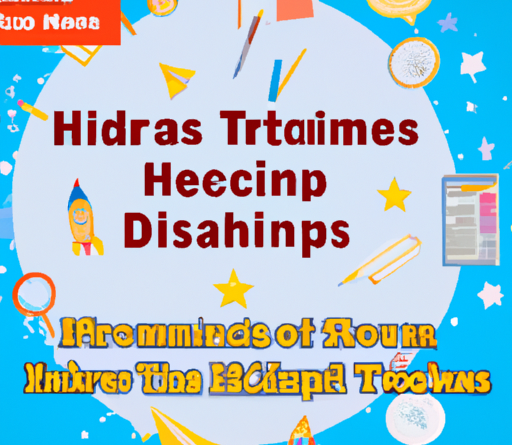Have you ever wondered what options are available for homeschooling? Well, you’re in luck! There are actually quite a few curriculum options that cater specifically to homeschoolers. In this article, we’ll explore these options in detail and help you decide which one might be the best fit for you and your child’s educational needs. Whether you’re new to homeschooling or a seasoned homeschooler looking for a change, we’re here to guide you through the vast landscape of curriculum options available to you.
When it comes to homeschooling, one size definitely does not fit all. Each child is unique, with different learning styles, interests, and strengths. Therefore, it’s important to find a curriculum that aligns with your child’s individual needs. Thankfully, there is a wide range of choices out there, from traditional textbook-based programs to online platforms and hands-on experiential learning opportunities. In this article, we’ll take a closer look at each of these options, discussing their pros and cons and helping you make an informed decision.
One popular curriculum option for homeschooling is the traditional textbook-based approach. This type of curriculum provides a structured framework for learning, with textbooks and workbooks that cover various subjects. It typically follows a set schedule and includes assessments and tests to measure your child’s progress. Another option is online learning platforms, which offer interactive lessons, videos, and quizzes that can be accessed on the computer. This can provide a more engaging and interactive learning experience for your child, especially if they enjoy using technology. Lastly, there are homeschooling curricula that emphasize hands-on and experiential learning, such as project-based learning or unit studies. These curricula encourage your child to explore their interests and learn through real-world experiences.
No matter which curriculum option you choose, the most important thing is that it aligns with your child’s needs and interests. In the next article, we will take a closer look at each of these options and provide helpful tips on how to evaluate and choose the best curriculum for your homeschooling journey. So, stay tuned, and get ready to dive into the world of homeschooling curriculum options! Homeschooling has become an increasingly popular choice for parents seeking to customize their child’s education. One of the greatest advantages of homeschooling is the flexibility it offers in terms of curriculum options. Whether you prefer a traditional textbook-based approach or a more alternative, experiential learning style, there are countless options available to cater to your child’s unique needs and interests. In this article, we will explore the wide range of curriculum options available for homeschooling, including traditional, alternative, religious, secular, special needs, foreign language, technology-focused, experiential, and physical education curricula.
Traditional Curriculum Options
Textbook-based curriculum
Textbook-based curriculum is the most common and traditional approach to homeschooling. With this option, parents use textbooks to teach subjects such as math, science, history, and language arts. Textbook-based curricula often come with lesson plans, workbooks, and assessments, providing a structured and systematic approach to learning.
Workbook-based curriculum
Similar to textbook-based curriculum, workbook-based curriculum utilizes workbooks as the primary instructional material. This option allows for more hands-on, interactive learning, as students engage with exercises and activities in their workbooks.
Teacher-led instruction
Teacher-led instruction is another traditional approach to homeschooling. In this method, parents take on the role of a teacher, delivering lessons and guiding their child’s learning. This option allows for personalized instruction and one-on-one attention.
Online curriculum
In the digital age, online curriculum has emerged as a popular option for homeschooling. Online curricula provide access to interactive lessons, multimedia resources, and virtual classrooms. This option offers the flexibility of self-paced learning, allowing students to work at their own speed and access educational material from anywhere with an internet connection.
Alternative Curriculum Options
Unit studies curriculum
Unit studies curriculum takes a thematic approach to learning, combining multiple subjects into a cohesive unit. For example, a unit on ancient Egypt might incorporate history, geography, art, and literature. This approach allows for a deeper understanding of topics and encourages interdisciplinary connections.
Montessori curriculum
Montessori curriculum is based on the educational philosophy developed by Maria Montessori. This approach emphasizes hands-on learning, self-directed activities, and the use of specialized Montessori materials. Montessori curriculum fosters independence, critical thinking, and a love for learning.
Unschooling
Unschooling is a non-traditional, child-led approach to homeschooling. With unschooling, there is no formal curriculum or set lesson plans. Instead, children are encouraged to pursue their interests and passions, allowing for self-directed learning and exploration.
Waldorf curriculum
Waldorf curriculum is based on the educational philosophy of Rudolf Steiner. This approach emphasizes creativity, imagination, and the integration of arts and academics. Waldorf schools often incorporate music, art, drama, and movement into their curriculum, creating a holistic and experiential learning environment.

Religious Curriculum Options
Christian homeschool curriculum
Christian homeschool curriculum integrates religious teachings and values into the academic subjects. This option allows parents to incorporate their faith into their child’s education and provide a religiously grounded worldview.
Islamic homeschool curriculum
Similarly, Islamic homeschool curriculum incorporates Islamic teachings and values into the academic subjects. This option allows Muslim families to provide their children with an Islamic education while homeschooling.
Jewish homeschool curriculum
Jewish homeschool curriculum is designed to provide a Jewish education at home. This curriculum incorporates Jewish history, holidays, traditions, and the Hebrew language into the academic subjects, allowing families to pass on their Jewish heritage.
Secular Curriculum Options
Secular homeschool curriculum
Secular homeschool curriculum focuses on academics without any religious or faith-based content. This option provides a neutral approach to education, accommodating families of different beliefs and backgrounds.
Secular humanist curriculum
Secular humanist curriculum promotes critical thinking, ethics, and humanistic values while excluding any religious teachings. This option encourages students to explore humanist perspectives and develop their own moral compass based on reason and compassion.

Special Needs Curriculum Options
Special education homeschool curriculum
Special education homeschool curriculum is designed specifically for children with special needs. This option provides tailored resources, strategies, and materials to support the individual learning needs of students with disabilities.
Individualized Education Program (IEP)
An Individualized Education Program (IEP) is a legal document that outlines the specific educational goals, accommodations, and support services for students with disabilities. Homeschooling parents can develop an IEP in collaboration with professionals to create a customized curriculum for their child.
Foreign Language Curriculum Options
Spanish homeschool curriculum
Spanish homeschool curriculum is designed to teach the Spanish language, including grammar, vocabulary, reading, writing, and conversation. This option allows students to gain proficiency in Spanish from a young age.
French homeschool curriculum
Similar to Spanish homeschool curriculum, French homeschool curriculum focuses on teaching the French language, including all aspects of language learning. This option allows students to develop fluency in French.
Mandarin homeschool curriculum
Mandarin homeschool curriculum is tailored for students interested in learning Mandarin Chinese. This option introduces students to Chinese characters, pronunciation, and cultural aspects associated with the Mandarin language.
Technology-Focused Curriculum Options
Coding curriculum
Coding curriculum introduces students to computer programming and coding languages. With this option, students learn the skills necessary to create websites, apps, and games, fostering critical thinking and problem-solving abilities.
Robotics curriculum
Robotics curriculum combines science, technology, engineering, and mathematics (STEM) concepts with hands-on activities and projects. This option allows students to build and program robots, developing their creativity, analytical thinking, and teamwork skills.
Digital media curriculum
Digital media curriculum focuses on digital literacy, media production, and communication skills. This option introduces students to photography, graphic design, video editing, and online collaboration tools, preparing them for the digital age.
Experiential Curriculum Options
Field trip-based curriculum
Field trip-based curriculum incorporates frequent educational outings and field trips as a central part of the learning experience. This option allows students to explore the world outside the traditional classroom, gaining real-world knowledge and experiences.
Nature-based curriculum
Nature-based curriculum emphasizes learning in natural environments. This option encourages students to spend time outdoors, fostering an appreciation for nature and focusing on subjects such as environmental science, ecology, and outdoor skills.
Apprenticeship-based curriculum
Apprenticeship-based curriculum involves hands-on learning through internships, mentorships, and apprenticeships. This option provides practical experience in a specific field of interest, allowing students to develop skills and make real-world connections.
Physical Education Curriculum Options
Sports-based curriculum
Sports-based curriculum focuses on physical fitness, sports skills, and team building. This option includes activities such as team sports, individual sports, and physical fitness exercises to promote an active and healthy lifestyle.
Fitness-based curriculum
Fitness-based curriculum emphasizes overall health and well-being. This option includes activities such as yoga, aerobic exercises, and strength training to develop physical fitness, flexibility, and body awareness.
Dance-based curriculum
Dance-based curriculum introduces students to various dance styles and techniques. This option allows students to explore their creativity, coordination, and expressiveness through the art of dance.
Conclusion
Homeschooling provides the opportunity for a truly customized education tailored to the individual needs and preferences of each child. With the multitude of curriculum options available, parents can choose a style that aligns with their educational philosophy, their child’s learning style, and their family’s values and beliefs. Whether you prefer a traditional textbook-based approach, a more alternative and experiential approach, a specialized religious or secular curriculum, or a focus on physical education or foreign languages, there is a homeschooling curriculum option out there to meet your unique requirements. By selecting the right curriculum, you can help your child thrive academically and personally in the comfort and flexibility of a homeschooling environment.





